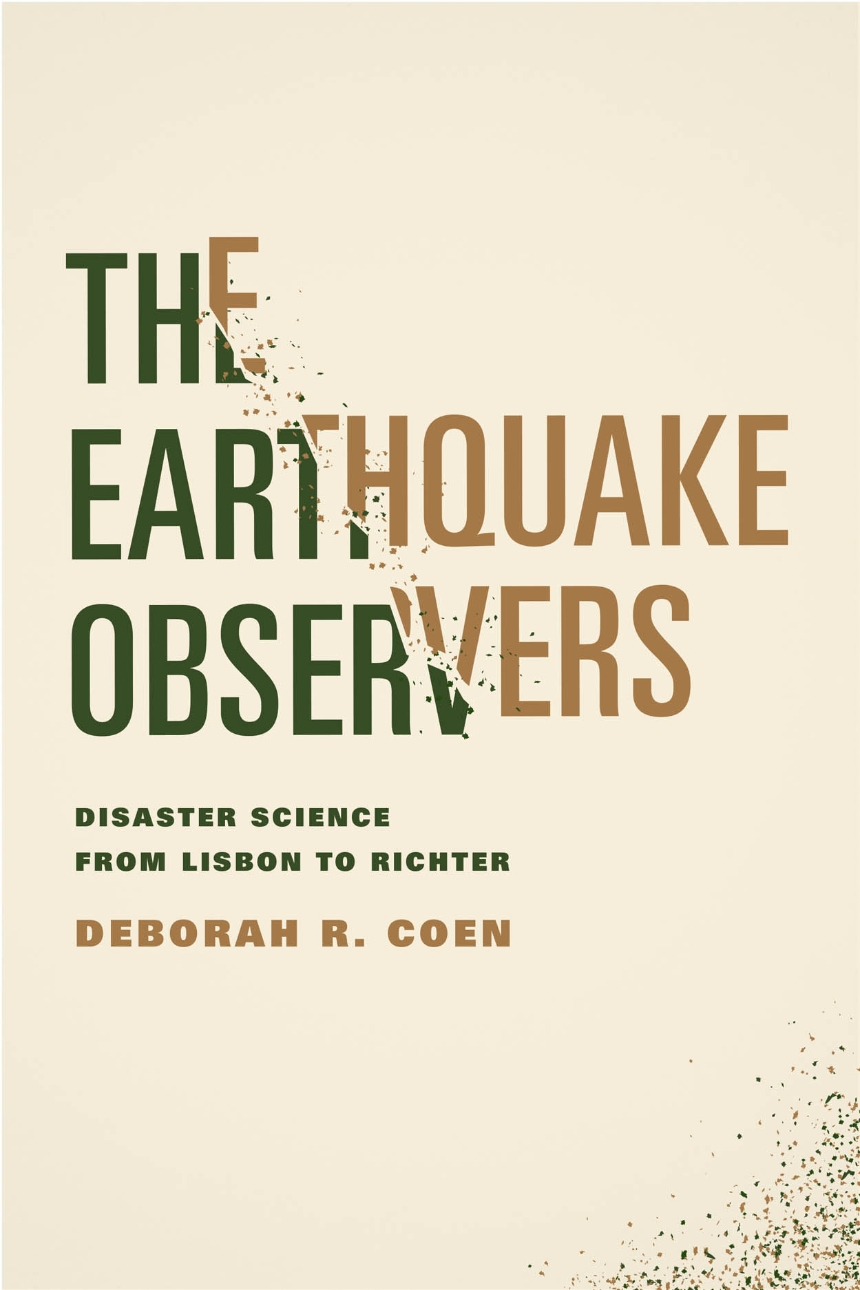The Earthquake Observers
Disaster Science from Lisbon to Richter
9780226212050
9780226111810
9780226111834
The Earthquake Observers
Disaster Science from Lisbon to Richter
Earthquakes have taught us much about our planet’s hidden structure and the forces that have shaped it. This knowledge rests not only on the recordings of seismographs but also on the observations of eyewitnesses to destruction. During the nineteenth century, a scientific description of an earthquake was built of stories—stories from as many people in as many situations as possible. Sometimes their stories told of fear and devastation, sometimes of wonder and excitement.
In The Earthquake Observers, Deborah R. Coen acquaints readers not only with the century’s most eloquent seismic commentators, including Alexander von Humboldt, Charles Darwin, Mark Twain, Charles Dickens, Karl Kraus, Ernst Mach, John Muir, and William James, but also with countless other citizen-observers, many of whom were women. Coen explains how observing networks transformed an instant of panic and confusion into a field for scientific research, turning earthquakes into natural experiments at the nexus of the physical and human sciences. Seismology abandoned this project of citizen science with the introduction of the Richter Scale in the 1930s, only to revive it in the twenty-first century in the face of new hazards and uncertainties. The Earthquake Observers tells the history of this interrupted dialogue between scientists and citizens about living with environmental risk.
In The Earthquake Observers, Deborah R. Coen acquaints readers not only with the century’s most eloquent seismic commentators, including Alexander von Humboldt, Charles Darwin, Mark Twain, Charles Dickens, Karl Kraus, Ernst Mach, John Muir, and William James, but also with countless other citizen-observers, many of whom were women. Coen explains how observing networks transformed an instant of panic and confusion into a field for scientific research, turning earthquakes into natural experiments at the nexus of the physical and human sciences. Seismology abandoned this project of citizen science with the introduction of the Richter Scale in the 1930s, only to revive it in the twenty-first century in the face of new hazards and uncertainties. The Earthquake Observers tells the history of this interrupted dialogue between scientists and citizens about living with environmental risk.
360 pages | 14 halftones, 1 line drawing | 6 x 9 | © 2012
Earth Sciences: History of Earth Sciences
History: History of Technology
Reviews
Table of Contents
Introduction
One The Human Seismograph
Two The Planet in the Village: Comrie, Scotland, 1788–1897
Three News of the Apocalypse
Four The Tongues of Seismology: Switzerland, 1855–1912
Five Geographies of Hazard
Six The Moment of Danger
Seven Fault Lines and Borderlands: Imperial Austria, 1880–1914
Eight What Is the Earth?
Nine The Youngest Land: California, 1853–1906
Ten A True Measure of Violence: California, 1906–1935
Conclusion
Acknowledgments
Notes
Bibliography
Index
Awards
European Society for Environmental History (ESEH) and the Rachel Carson Center for Environment and Society (RCC): Turku Book Prize
Finalist
